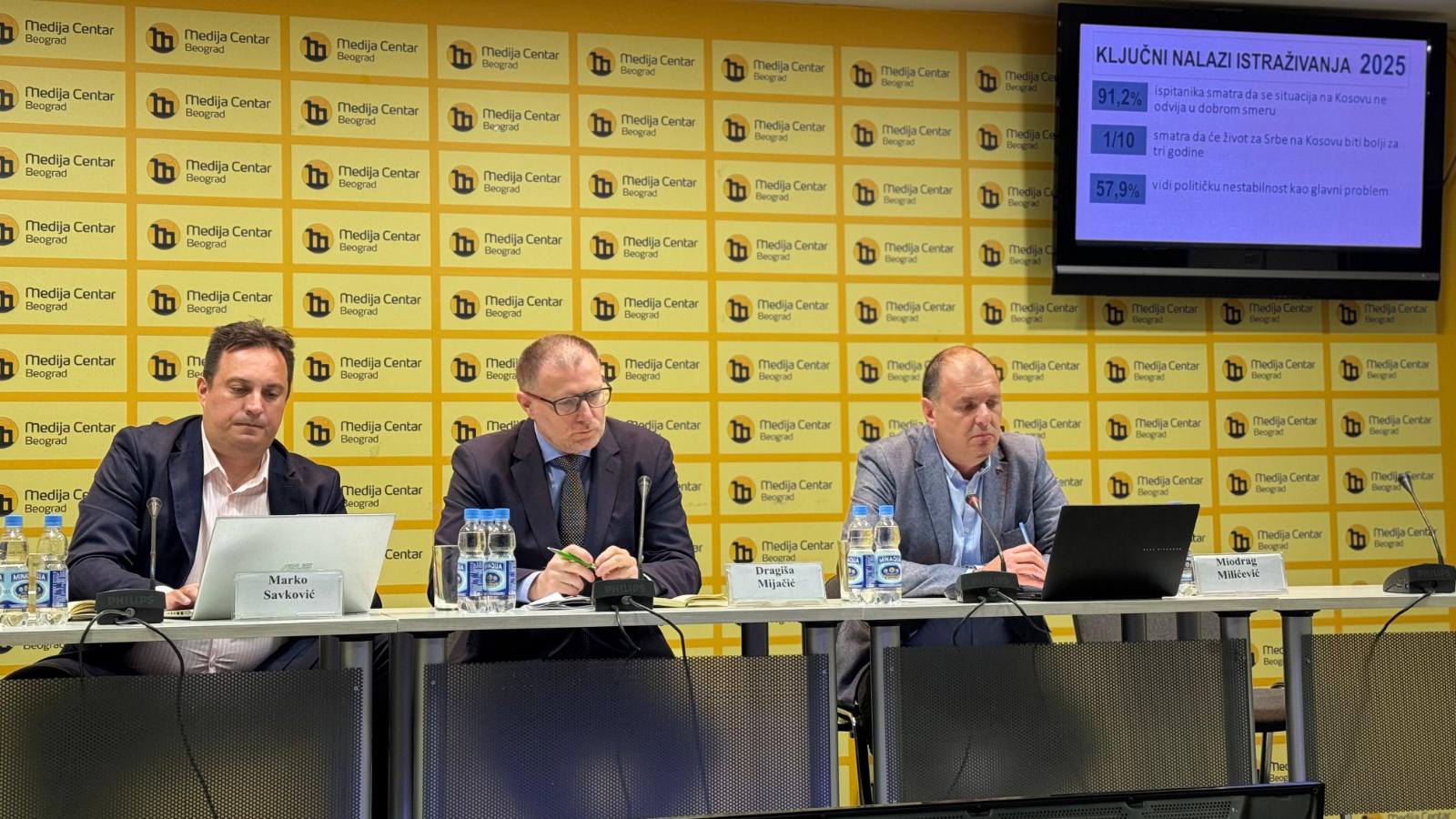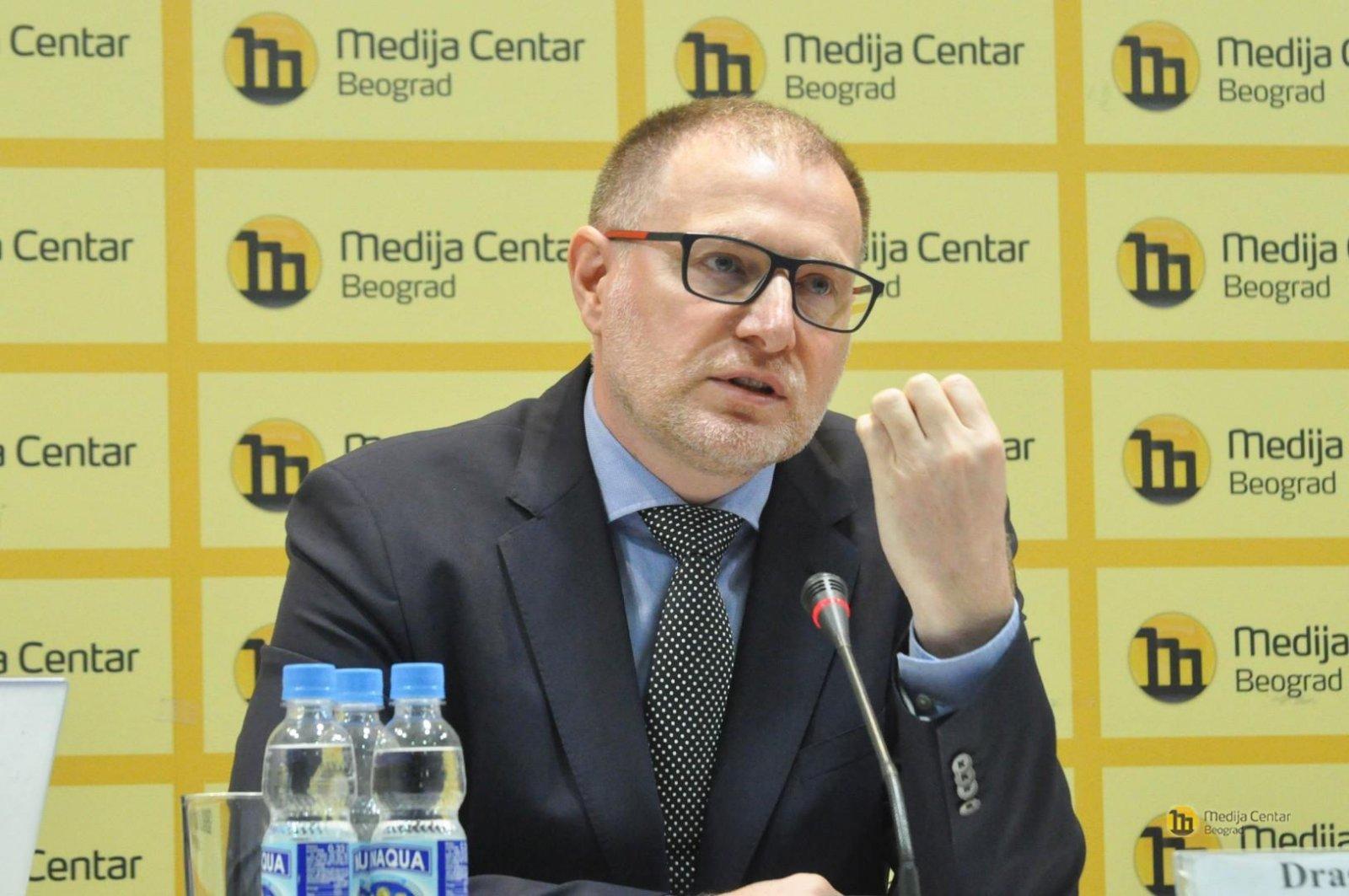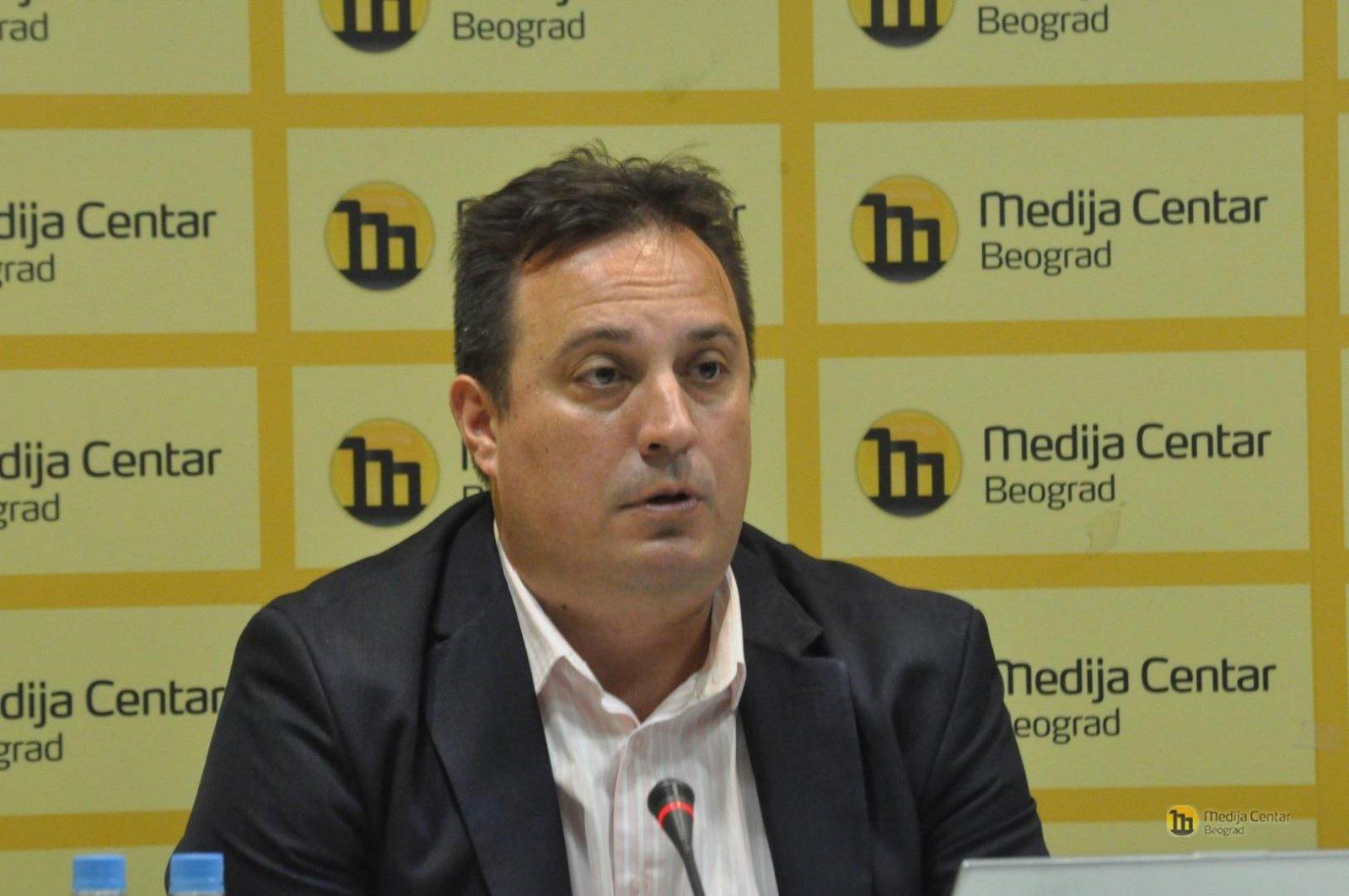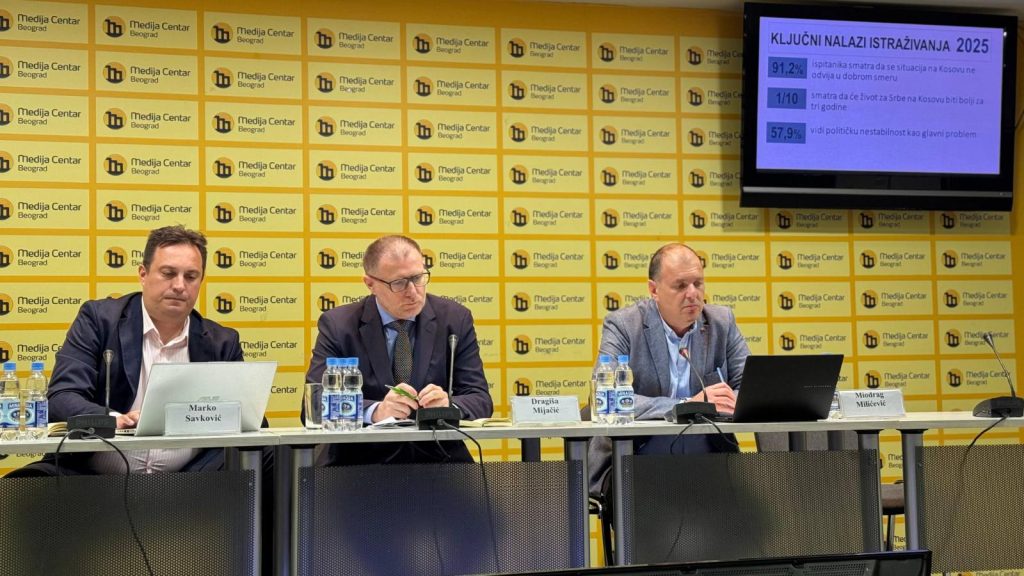Distrust, insecurity, and a sense of abandonment dominate the attitudes of Kosovo Serbs, according to the results of the “Trends Analysis 2024” survey presented by NGO Aktiv on May 13 in Belgrade. The research, conducted between June and December 2024, mapped the Serbian community’s views on the political, security, economic, and social situation in Kosovo during one of the most politically unstable periods in recent years.
As many as 91.2% of respondents believe that Kosovo is heading in the wrong direction, while only 10% think life will improve for Serbs in the next three years. Over half (57.9%) cite political instability as the key challenge, while 72% do not trust any political party or representative advocating for Serb interests. A striking 86.9% refused to name any political leader they trust.
In terms of institutional trust, the highest ratings were given to KFOR (2.55), the Government of Serbia (2.49), the Office for Kosovo and Metohija (2.33), and the OSCE (2.31). The lowest ratings went to the Government of Kosovo, Serb ministers, and MPs in Kosovo institutions. Citizens feel their expectations have been systematically betrayed, and that political actors from both Belgrade and Pristina have failed to show adequate responsibility toward their community.
Regarding the Belgrade-Pristina dialogue, skepticism prevails. Nearly half (48.5%) believe the dialogue will bring no changes, and 31.4% expect it to worsen the situation. Only 19.9% see a possibility for a positive outcome.
The security situation also raises concern: 29.1% of respondents from northern Kosovo said they felt personally unsafe during 2024, while the total percentage for all of Kosovo stands at 18.1%. Migration remains a prominent trend: 66% know someone who left Kosovo in the past year, with that figure rising to 70.9% in the north.
A particularly burdensome measure was the ban on dinar-based payment transactions, which, according to the findings, affected nearly 90% of respondents. Despite this, there has been a noted increase in trust toward Serbian-language media reporting from within Kosovo.
“The entire report is pessimistic and speaks more about the survival of the Serb community in Kosovo than about its political participation. The issue of migration remains unanswered, with no institutional response from Pristina, Belgrade, or international actors,” said NGO Aktiv Executive Director Miodrag Milićević.
One of the report’s authors, Marko Savković from the ISAC Fund, stated that almost no one perceives the security situation as good and that the aftermath of the Banjska attack marked the sharpest decline in security perception over the past five years. He added that citizens increasingly feel discouraged and are withdrawing from political engagement.
Dragiša Mijačić from the Institute for Territorial Economic Development (InTER) pointed out that the analysis clearly shows Serbs do not trust Kosovo’s institutional framework, particularly in the north, where attitudes are more conservative and critical compared to the rest of the community.
Participants concluded that this is the most comprehensive analysis of Serb attitudes in Kosovo to date, providing essential information to decision-makers and the public, and called for urgent action to prevent further deterioration.
The full report is available on NGO Aktiv’s website.
Srpski: https://shorturl.at/JnJ9L
Shqip: https://shorturl.at/adikb
English: https://shortu
rl.at/dvJDA








